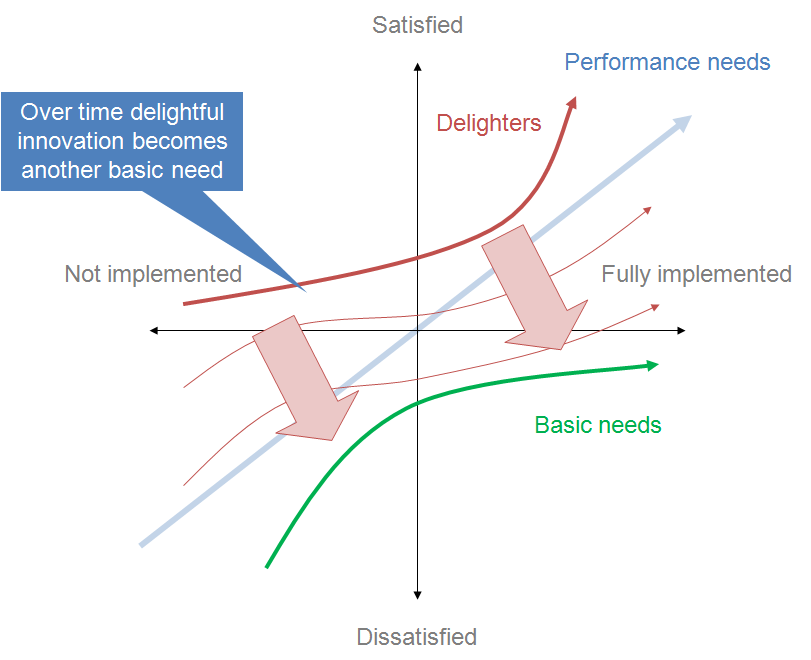Scipreneurs will greatly benefit from it: you'll be able to move beyond the "problem-solution" framework, and it gives the tools to understanding complex contexts, the competition, and how to develop a compelling value proposition.

💹 Last week I came across the Kano model to classify customer preferences for attributes of products. But is it useful? 🤨
The model uses 3 important classes of attributes:
- Basic: if absent or poorly implemented, they have a negative impact on perception, such as a camera on a phone.
- Performance: attributes that have a linear impact, such as battery life of a phone.
- Delighters: Those that have a supra-linear impact, and that customers are not expecting, such as face id to unlock the phone.
The model is used to define quality attributes, but it was originally created for product development processes.
And although it makes lots of sense at first sight, it misses a critical component to be useful: how to find out the attributes to test. How to make it useful for innovation.
All the examples I could gather imply a form of brainstorm and sticky notes on a wall. A complete random process which is extremely prone to internal biases and to miss critical information.
Imagine if, few years ago, you would have used this model to check wether the physical keyboard on a phone was a basic attribute.
The Kano model offers a quick mental way to think about the attributes of our products. But I wouldn't loose to much sleep over it.
I still am a big fan of the "Jobs to be Done Framework" by @Tony Ulwick.
-- 👋 Hi! I'm @Aquiles.
I'm a scientist turned entrepreneur. I share insights on the challenges of #scipreneurship
Follow me to get all my latest thoughts and reflections.
Backlinks
These are the other notes that link to this one.
